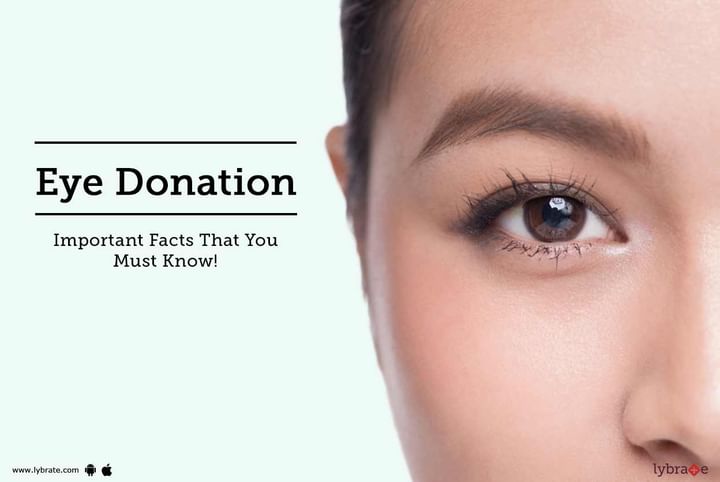Eye Donation - Important Facts That You Must Know!
Every human being with sight can choose to donate their eyes after their death and gift another person vision. When it comes to eye donation, there is no restriction on the person’s age or overall health. Even a person who has had surgery on their eyes can choose to donate them as long as the cornea is unaffected. It is not only noble but the thought of being able to give some a chance to see the world with your eyes can give you immense joy.
However, just a thought is not enough, there are few other facts to be kept in mind before going for eye donation:
- Eyes need to be donated within 6 hours of a person’s death: For your eyes to be viable for a donation they must be harvested within 6 hours of death. Thus, if you choose to be a donor, it is important for you to inform your family and friends of this decision. Eye donation can also be authorized by the deceased’s next of kin.
- Donation does not cost money: There are no costs involved in donating your eyes. Profiting by buying and selling human organs and tissues is a criminal at and can be punishable by law.
- The whole eye is not transplanted: The most common cause of blindness is a damaged or diseased cornea. Thus, only this area is transplanted to enable a person to see. The cornea is a thin, transparent flap located in front of the colored part of the eye. Thus, donating eyes does not disfigure the deceased person in any way.
- Even people who wear spectacles can donate their eyes: Short sightedness or far sightedness are conditions caused by irregularities with the lens inside the eye and do not affect the cornea. Thus these conditions do not interfere with their ability to donate their eyes after death. Even people who have been operated upon for cataracts, retinal detachments or glaucoma may choose to donate their eyes. It is even possible for a person who has received a corneal transplant to donate their eyes as long as the cornea is healthy and clear.
- Corneal Transplants have a high success rate: There is no blood supply to the cornea and hence there is a very low risk of the body rejecting a donor cornea. In many cases, this rejection can be treated and suppressed with medication.
Though over 30,000 corneas are donated and transplanted each year, there is still a long waiting list at eye banks. Thus, it time you take a pledge to make someone else's life beautiful. Do not think twice about donating your eyes and encourage people around you to do so as well. If you wish to discuss about any specific problem, you can consult an Ophthalmologist.



+1.svg)
